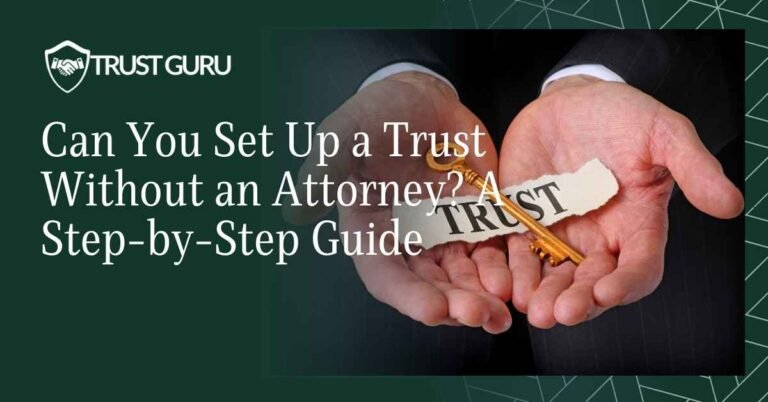Protecting your assets is one of the most important steps you can take to ensure financial stability and peace of mind.
Whether you’re planning for retirement, managing wealth, or safeguarding family inheritance, the right strategies can make all the difference.
In this guide, we’ll explore seven proven strategies to help you identify the best way to protect your assets in 2025 and beyond.
What You’ll Learn
- Establishing a Trust: The cornerstone of asset protection
- Diversifying Investments: Minimizing risk through diversification
- Obtaining Adequate Insurance Coverage
- Forming a Limited Liability Company (LLC) or Corporation
- Using Asset Protection Trusts for High-Net-Worth Individuals
- Keeping Up with Legal Changes and Cybersecurity Risks
- Consulting with Professionals for Tailored Solutions
Each section will provide actionable advice, real-life examples, and tips to help you take control of your financial future. Let’s dive in!

1. Establishing a Trust
Trusts are one of the most reliable and effective ways to protect your assets. By transferring ownership of assets to a trust, you can safeguard them from creditors, lawsuits, or mismanagement while ensuring they’re distributed according to your wishes.
Trusts not only protect your assets in the short term but also provide numerous long-term benefits that make them a cornerstone of financial planning.
Types of Trusts to Consider:
Explore specialized options such as asset protection trusts tailored to your needs.
- Revocable Trusts: Flexible and allows you to make changes as your financial or personal circumstances evolve. However, revocable trusts provide limited protection from creditors since the assets remain in your control.
- Irrevocable Trusts: These trusts offer robust protection because the assets are no longer owned by you and cannot be accessed by creditors or lawsuits. While less flexible than revocable trusts, they are ideal for safeguarding significant assets and minimizing estate taxes.
- Specialized Trusts: These include options like Spendthrift Trusts, which are designed to protect beneficiaries from their creditors by restricting direct access to the trust’s funds. Other specialized trusts may focus on specific needs, such as Medicaid Asset Protection or Charitable Trusts, to achieve unique financial goals.
Long-Term Benefits of Establishing a Trust:
- Legacy Planning: Trusts ensure that your wealth is preserved and passed down to future generations according to your wishes.
- Avoiding Probate: Assets held in a trust bypass the probate process, saving time, reducing costs, and maintaining privacy for your beneficiaries.
- Minimized Family Disputes: Clear terms in a trust reduce the likelihood of conflicts among heirs.
- Tax Efficiency: Certain trusts can help reduce estate taxes and other liabilities, preserving more wealth for your beneficiaries.
- Protection Against Creditors: Trusts like irrevocable or asset protection trusts provide robust shielding from lawsuits and creditors. This blog post from Trust Guru, How to Protect Your Assets from Creditors, offers insights into shielding your wealth against potential creditor claims.
Learn more about our living trust creation services to start safeguarding your assets effectively.
Visit the IRS’s guide to estate and gift taxes to understand the tax implications of establishing trusts and transferring wealth.

2. Diversifying Investments
Diversification is a fundamental strategy to mitigate risk and protect your wealth. Instead of putting all your assets into one investment, spread them across various asset classes such as:
- Stocks
- Bonds
- Real Estate
- Commodities
- Cash Reserves
For instance, while real estate can offer stable returns, pairing it with stocks provides growth potential. A well-diversified portfolio minimizes the impact of market volatility, ensuring your financial safety net remains intact.
Consider a middle-aged investor, Jane, who has $500,000 to allocate. Initially, Jane invests the majority of her funds in real estate.
While her rental property provides steady income, a sudden economic downturn causes a significant drop in property value and rental demand. To mitigate such risks, she revises her strategy by diversifying her portfolio. Jane reallocates her assets as follows:
- 40% in real estate for stability and rental income
- 30% in a mix of domestic and international stocks for growth
- 20% in bonds for steady returns
- 10% in cash reserves for liquidity and emergency needs
This diversified approach protects Jane from being overly reliant on one sector. When the real estate market dips, gains in her stock portfolio and the steady income from bonds help offset losses, ensuring her overall financial position remains secure.
This example highlights how diversification can provide resilience against market volatility and ensure long-term financial stability.
The Trust Guru blog, Beginner’s Guide to Diversification in Wealth, provides essential tips on building a resilient investment portfolio. It complements this article with practical advice on minimizing risk through diversification strategies.

3. Obtaining Adequate Insurance Coverage
Insurance is your first line of defense against unforeseen risks. The right policies can shield your assets from lawsuits, natural disasters, or unexpected medical expenses.
Essential Insurance Policies:
- Homeowners or Renters Insurance: Protects your property, typically costing $1,200 to $3,000 annually, depending on the size, location, and coverage level of your home.
- Umbrella Insurance: Provides additional liability coverage beyond standard policies, averaging $150 to $300 annually for $1 million in coverage.
- Life Insurance: Secures financial stability for your family, with term life insurance policies averaging $300 to $1,000 per year based on age and health.
- Business Insurance: Safeguards assets in case of business-related risks, costing anywhere from $500 to $5,000 annually, depending on the size and type of business.
For instance, landlord insurance can protect rental property owners from tenant lawsuits or property damage. Explore legal compliance & risk oversight to ensure your financial interests are safeguarded.
Why Act Now?
Addressing insurance needs immediately is critical because unforeseen risks can arise without warning. For example, natural disasters are becoming increasingly frequent, making homeowner’s insurance essential.
Similarly, unexpected lawsuits or liability claims can quickly deplete your savings if you lack umbrella insurance. Taking action now ensures you’re prepared for emergencies, protecting both your assets and your peace of mind.
For example, if you own rental properties, landlord insurance can protect you from tenant lawsuits or property damage, ensuring your investments remain profitable and secure.

4. Forming a Limited Liability Company (LLC) or Corporation
For business owners or real estate investors, forming an LLC or corporation can separate personal and business liabilities. This legal structure ensures that personal assets are shielded from potential lawsuits or debt claims against your business.
Key Benefits of an LLC or Corporation:
- Limits Personal Liability: By separating personal and business assets, an LLC or corporation protects your personal wealth from being at risk in case of business-related lawsuits or debts.
- Example: Imagine a small business owner, Mark, who operates a successful construction company as a sole proprietor. When an unexpected workplace accident occurs, Mark is held personally liable for damages, putting his personal savings and home at risk. To prevent this scenario in the future, Mark establishes an LLC. Now, any legal claims are limited to the assets of the LLC, leaving his personal finances untouched.
- Provides Tax Advantages: Depending on the structure, LLCs and corporations can offer significant tax savings through deductions on expenses, salaries, and other business costs. Additionally, corporations may benefit from lower tax rates on retained earnings.
- Example: After forming an LLC, Mark discovers tax benefits by deducting certain business expenses, such as equipment purchases, reducing his overall tax burden. This not only helps Mark save money but also improves his financial stability.
- Establishes Credibility and Professionalism: Operating as an LLC or corporation enhances your reputation with clients, investors, and partners by showcasing a commitment to professionalism and legal compliance.
- Example: The shift to an LLC also bolsters Mark’s company’s reputation as a reliable, professionally managed business. Clients and partners perceive his business as more established, which opens new opportunities for growth and collaboration.
For added protection, consider business asset protection strategies to mitigate risks effectively.
This article, Why Choose Complete Asset Protection Services LLC, explores how forming an LLC can shield personal and business assets from potential risks. It complements our article by highlighting the benefits of LLCs for asset protection and tax planning.

5. Using Asset Protection Trusts for High-Net-Worth Individuals
High-net-worth individuals often face unique challenges, including higher exposure to lawsuits and creditors. Asset Protection Trusts (APTs) are tailored to shield significant wealth by providing a robust layer of security that is difficult for creditors to penetrate.
These trusts are specifically designed to protect assets while allowing the trust owner or beneficiaries to maintain some level of benefit or control.
Features of APTs:
- Jurisdictional Advantages: APTs are typically established in jurisdictions with strong asset protection laws, such as Nevada or offshore locations like the Cook Islands. These jurisdictions offer legal frameworks that make it challenging for creditors to access trust assets.
- Creditor Protection: APTs safeguard assets from lawsuits, divorce settlements, and other creditor claims. Once assets are placed in the trust, they are no longer considered part of your personal estate.
- Income Benefits: While protecting the principal, APTs can allow the trust owner or designated beneficiaries to receive income generated by the assets.
- Customizable Terms: These trusts can be tailored to meet specific needs, such as stipulating conditions for distributions or including provisions for future contingencies.
- Estate Tax Efficiency: APTs can also help minimize estate taxes, ensuring more of your wealth is preserved for heirs.
Discover how business asset protection and creditor protection strategies can shield your wealth effectively.
This blog post from Trust Guru, Financial Strategies for High-Net-Worth Individuals, provides expert insights into wealth management, tax planning, and asset protection techniques specifically tailored for affluent clients.

6. Keeping Up with Legal Changes and Cybersecurity Risks
The financial landscape is constantly evolving, with new legal and cybersecurity threats emerging each year. Laws governing estate planning, tax liabilities, and financial protections can change frequently, requiring individuals to stay vigilant.
At the same time, the increasing prevalence of cybercrime poses serious risks to digital financial accounts and sensitive information.
Why It’s Crucial to Stay Updated
Failing to keep up with legal changes can result in outdated estate plans that no longer align with current regulations, potentially leading to higher taxes or complications in asset distribution.
Similarly, neglecting cybersecurity measures can expose you to identity theft, financial fraud, or loss of sensitive data, jeopardizing your entire financial strategy.
For Example:
Imagine Sarah, a retiree who established an estate plan 10 years ago. Due to recent tax law changes, her plan now exposes her beneficiaries to higher estate taxes. By consulting her estate planner and updating her plan, Sarah saves her heirs thousands of dollars in unnecessary taxes. Simultaneously, Sarah bolsters her cybersecurity by implementing two-factor authentication on her bank accounts, reducing the risk of digital theft.
Steps to Stay Ahead:
- Monitor Changes in Estate and Tax Laws: Regularly consult with a legal professional to ensure your estate plans and asset protections comply with the latest regulations.
- Strengthen Cybersecurity: Use advanced cybersecurity tools, such as encrypted password managers, multi-factor authentication, and anti-phishing software, to safeguard digital accounts.
- Regularly Update Your Estate Plan: Life changes such as marriages, divorces, births, or significant financial events necessitate updates to your estate plan to ensure alignment with your goals and legal requirements.
Taking proactive measures to address legal and cybersecurity risks not only secures your assets but also provides peace of mind in an ever-changing environment.
The FTC provides actionable tips for small businesses to improve cybersecurity and safeguard sensitive information

7. Consulting with Professionals for Tailored Solutions
Seeking professional advice is a step-by-step process that ensures your asset protection strategies are comprehensive and aligned with your specific needs.
Professionals like financial advisors, estate planners, and attorneys bring expertise to complex decisions, making the process smoother and more effective.
Steps to Consult with Professionals:
- Identify Your Needs:
- Are you looking to set up a trust or LLC?
- Do you need help navigating tax implications or planning for estate taxes?
- Are there complex family or business dynamics that require tailored solutions?
- Research and Choose Experts:
- Look for professionals with experience in asset protection and estate planning.
- Check their credentials, reviews, and areas of expertise.
- Schedule a Consultation:
- Meet with the selected professional to discuss your goals, financial situation, and concerns.
- Ask questions to ensure they understand your unique circumstances.
- Develop a Customized Plan:
- Work with the professional to create a strategy that addresses your needs, such as trust structures, business protections, or tax-efficient plans.
- Ensure the plan includes both immediate and long-term solutions.
- Implement the Plan:
- Set up trusts, LLCs, or other structures as recommended.
- Update existing legal documents to reflect your current goals.
- Review and Adjust Periodically:
- Revisit your asset protection strategy with the professional every few years or after major life events to ensure it remains effective.
Our trustee services strategies are designed to offer customized solutions for all your asset protection needs.
At Trust Guru, our team’s fast response times and dedication to quality service make us a trusted partner in safeguarding your wealth.
We work closely with clients to tailor solutions that provide long-term security, ensuring peace of mind and financial stability.
Final Thoughts
The best way to protect your assets in 2025 is through a proactive and informed approach. From establishing trusts to diversifying investments and staying ahead of legal changes, these seven strategies provide a solid foundation for safeguarding your wealth.
By taking action now, you not only ensure financial stability but also gain peace of mind knowing your assets are secure. Contact Trust Guru today to learn more about how we can help you implement the best way to protect your assets. Let’s secure your future together!













